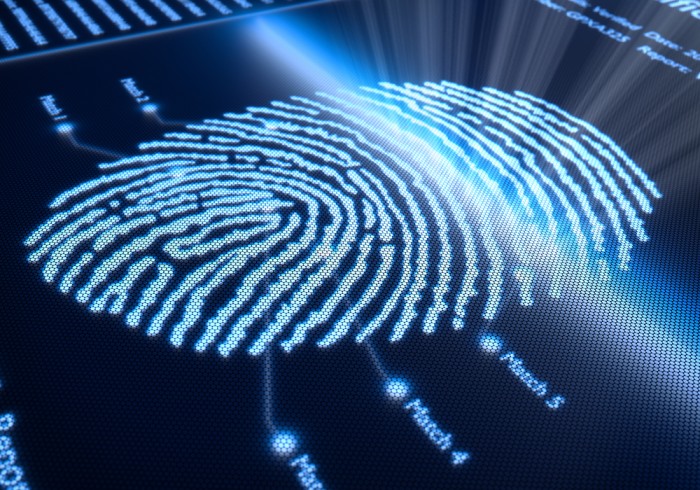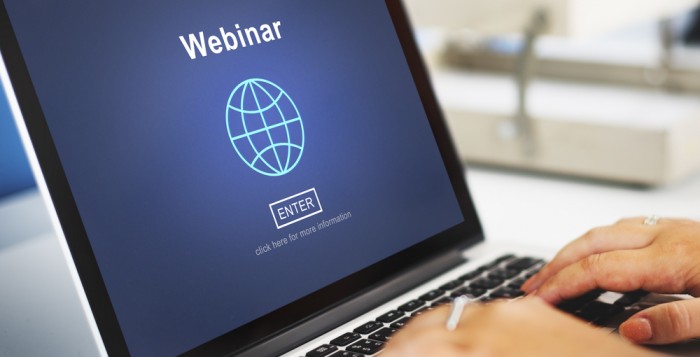FBI Background Checks Grace Period Ends Dec. 31, 2020 – Recommend to Begin Process Now
The Department of Human Services (DHS) today reminded people needing Federal Bureau of Investigation (FBI) criminal history background checks as a condition of employment that the December 31 deadline to obtain this clearance is approaching, and strongly encouraged anyone needing this clearance to start the process now. Earlier this year, Governor Wolf signed Act 18 of 2020, which extends the time period for certain professions required by the Child Protective Services Law (CPSL) to obtain an FBI background check upon hiring…”
In order to receive an FBI background check, fingerprints must be submitted as part of the criminal history check. Fingerprint scans can be taken at an IdentoGO location in the Commonwealth. A map of all open IdentoGO locations is available here, and this map is updated as new offices begin to reopen. Anyone seeking fingerprinting services should call IDEMIA’s customer service at 844-321-2101 to ensure the location is still operating, schedule an appointment, and discuss necessary COVID-19 safety precautions.
If employers have a large number of employees needing new or renewed clearances, arrangements can be made to have fingerprinting occur at the workplace. Mobile fingerprinting services are available for an additional fee through IDEMIA for groups of 20 or more needing clearances. Agencies with this need should contact IDEMIA to schedule.
Under Act 18 of 2020, individuals who are required to obtain an FBI background check were given additional time to meet this requirement because of closures caused by the COVID-19 pandemic. The extension for new hires to obtain the FBI background check lasts until 60 days following the expiration of the disaster emergency declaration issued by Governor Wolf or December 31, 2020, whichever is sooner. Individuals seeking a renewal of the FBI Criminal History Background Check have until December 31, 2020 to obtain the check. All individuals required to obtain additional clearances, including the Pennsylvania State Police Criminal Record Check and the Pennsylvania Child Abuse History Clearance, must still obtain these clearances prior to employment. Both of these clearances can be obtained online.
Act 18 of 2020 applies to individuals who must get their FBI Criminal History Background Check prior to beginning employment as found in Section 6344 of the CPSL and those individuals required by Section 6344.4 of the CPSL that are due to have their fingerprint checks renewed. The law does not extend the fingerprinting and background check requirement for new volunteers under the CPSL, public school employees prior to employment, and others required to receive FBI background checks under different departments.
If you have any questions, please contact RCPA Children’s Division Director Jim Sharp.
MLTSS Subcommittee Transcript/Upcoming Meeting
The Managed Long-Term Services and Supports (MLTSS) Subcommittee meeting transcript from the October 7, 2020 meeting has been posted. The next MLTSS Subcommittee is scheduled for Wednesday, November 4, 2020 from 10:00 am – 1:00 pm and will be held via webcast. The information to participate is available below:
- Webinar Link: https://attendee.gotowebinar.com/register/9164975178583542541Opens In A New Window
- Public Call in #: 1-415-655-0060 PIN: 753-009-978
- Remote Streaming Link: https://2020archive.1capapp.com/event/mltssOpens In A New Window
DOH Adds Testing Site In Northumberland County To Help Contain Local Spread Of COVID-19
FAQ About Modifications to Medication Administration Course During COVID-19
ODP Announcement 20-102 provides guidance on medication administration as a result of the COVID-19 pandemic and addresses frequently asked questions (FAQs) relating to medication administration requirements that were modified as a result of the COVID-19 pandemic. These questions and responses apply to both new and current staff unless otherwise indicated.
Due to the COVID-19 pandemic, ODP has temporarily allowed staff who are required to take the standard medication administration course to take the modified medication course. In order to ensure that individuals who require assistance with medication receive such assistance, staff required to take the standard medication administration course may administer medications after successfully completing ODP’s Modified Medication Administration Training Course, available on www.MyODP.org.
- For staff to successfully complete the initial phases of the Modified Medication Administration Training Course, prior to administering medications, the following must occur:
- The staff must receive training from the provider on the use of the provider’s medication record for documenting the administration of medication; and
- The staff must be observed administering medications four times by a Certified Medication Administration Trainer or Certified Medication Administration Practicum Observer, unless a trainer or observer is not available due to the COVID-19 pandemic. Observation may be conducted in-person or remotely using video interface technology. Remote observation is encouraged to maintain social distancing; and
- The staff must be observed applying proper handwashing and gloving techniques one time by a Certified Medication Administration Trainer. Observation may be conducted in-person or remotely using video telecommunication technology. Remote observation is encouraged to maintain social distancing.
- Staff who have completed the initial requirements to begin administering medications as above must also comply with same the annual practicum requirements as those staff who have completed the standard medication administration training course. These requirements are:
- Ensure observations of medication administrators occur two times annually by a Certified Medication Administration Trainer or Certified Medication Administration Practicum Observer. Observations of the medication administrations may be conducted in-person or remotely using video telecommunications technology. Remote observation is encouraged to maintain social distancing; and
- Ensure Medication Record Reviews for the medication administrator occur two times annually by a Certified Medication Administration Trainer or Certified Medication Administration Practicum Observer. Medication Record Reviews of the medication administrations may be conducted in-person or remotely using video telecommunications technology. Remote reviews are encouraged whenever possible to maintain social distancing; and
- Providers must retain record of staff’s completion of the Modified Medication Administration Training Course by retaining a copy of the certificate of completion.
Please see the announcement for the Q&A regarding the requirements going forward.
CMS Announces Expansion of Telehealth Services During COVID-19 Public Health Emergency
Today, the Centers for Medicare and Medicaid Services (CMS) announced they have expanded the list of telehealth services that Medicare Fee-for-Service (FFS) will pay for during the COVID-19 public health emergency (PHE). CMS is also providing additional support to state Medicaid and Children’s Health Insurance Program (CHIP) agencies as a part of their efforts to expand access to telehealth.
CMS is adding eleven new services to the Medicare telehealth services list since the initial publication of the May 1, 2020 COVID-19 interim final rule (IRF) with comment period. Medicare will begin paying eligible practitioners who furnish these newly added telehealth services effective immediately, and for the duration of the PHE. These new telehealth services include certain neurostimulator analysis and programming services, and cardiac and pulmonary rehabilitation services.
In an effort to provide greater transparency on telehealth access in Medicaid and CHIP, CMS is releasing, for the first time, a preliminary Medicaid and CHIP data snapshot on telehealth utilization during the PHE. This snapshot shows, among other things, that there have been more than 34.5 million services delivered via telehealth to Medicaid and CHIP beneficiaries between March and June of this year, representing an increase of more than 2,600% when compared to the same period from the prior year. The data also shows that adults ages 19-64 received the most services delivered via telehealth, although there was substantial variance across both age groups and states. Additionally, CMS is releasing a new supplement to its “State Medicaid & CHIP Telehealth Toolkit: Policy Considerations for States Expanding Use of Telehealth, COVID-19 Version,” which provides numerous new examples and insights into lessons learned from states that have implemented telehealth changes. This updated information is intended to assist states strategically think through how they explain and clarify to providers and other stakeholders which policies are temporary or permanent. It also helps states identify services that can be accessed through telehealth, which providers may deliver those services, the ways providers may use in order to deliver services through telehealth, as well as the circumstances under which telehealth can be reimbursed once the PHE expires.
The toolkit includes approaches and tools states can use to communicate with providers on utilizing telehealth for patient care. It updates and consolidates in one place the frequently asked questions and resources for states to consider as they begin planning beyond the temporary flexibilities provided in response to the pandemic.
Job Developing for People with Disabilities During Increased Unemployment
From ANCOR:
Through our federal contract with the Office of Disability Employment Policy (ODEP), EconSys is facilitating an online dialogue on Job Developing for People with Disabilities During Times of Increased Unemployment.
This opportunity allows individuals the ability to express opinions on job development and support during these unprecedented times. We invite individuals with disabilities, their family members, and advocates, along with employment specialists, VR counselors, job coaches, employers, and others to submit their ideas.
We want to hear from you about:
- Addressing health risks
- Balancing self-determination and health
- Addressing increased unemployment
We (ODEP and EconSys) would like you to share this opportunity with your network to increase participation. The online dialogue will be open through October 18, 2020.
——————————
Donna Martin
American Network of Community Options and Resources
Alexandria, VA
401-965-9411
[email protected]
——————————
HHS Webinars: Phase Three Provider Relief Fund General Distribution
In case you missed it, there are two informational webinars taking place this week offered by the Department of Health and Human Services (HHS) focusing around the newly available Phase 3 Provider Relief Fund General Distribution.
NOTE – the first webinar (Thursday, Oct. 15) will largely be a demo of the Provider Relief Fund application portal and more of a general overview. The second webinar (Friday, Oct. 16) is specifically geared towards behavioral health care providers/organizations and will provide updates on how Phase 3 has expanded funding eligibility to more behavioral health care providers/organizations. We encourage you to attend both!
As a reminder, applications for the Phase 3 General Distribution are being accepted now through November 6, 2020. See below for webinar registration details. If you have any questions, please email: [email protected].
Webinar 1: Provider Relief Fund – Phase 3 Informational Webcast
- WHEN: Thursday, October 15, 3:00 PM ET
- Register here
Webinar 2: HHS Provider Relief Fund and the Behavioral Health Community
- WHEN: Friday, October 16, 2020, 3:00 PM ET
- Register here
After registering, you will receive a confirmation email containing information about joining the webinars.
HHS encourages behavioral health care providers/organizations to apply as soon as possible. Again, download instructions, review the FAQs, and check out our updated “Rules of the Road” infographic to help guide you through the application process.















